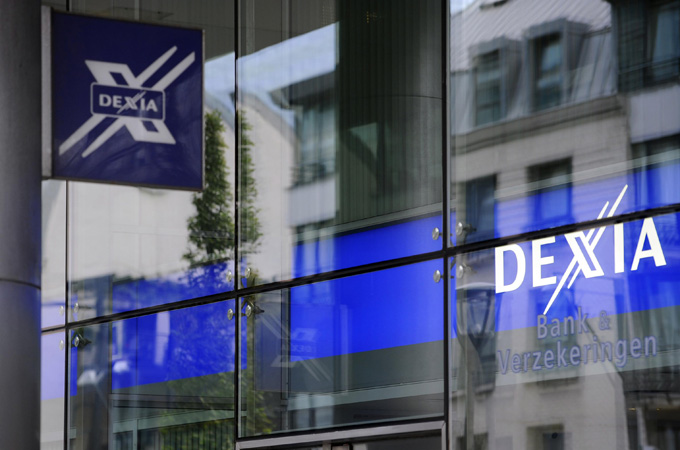France and Belgium stand by ailing bank
French government says plans to rescue Dexia will be announced soon, while Brussels says bank could be nationalised.

 |
| Shares of Dexia have fallen more than 20 per cent as the Greek crisis is affecting many European banks [EPA] |
A huge rescue operation looks imminent for the Franco-Belgian bank Dexia SA, after France’s finance minister indicated that a partial solution to save the bank could be announced soon.
Francois Baroin said on Wednesday that Dexia “cannot continue in its present form, that is incontestable” and that the bank’s supervisory board would unveil “a very important response” to the crisis on Thursday.
Keep reading
list of 4 items‘We need you’: Solomon Islands’ support for US agency’s return revealed
Why are nations racing to buy weapons?
Parallel economy: How Russia is defying the West’s boycott
He also told the French radio station RTL, that a solution would probably involve French state-owned banks CDC and Banque Postale taking over Dexia’s municipal lending operations.
| Thomas Costerg, an economist, tells Al Jazeera how the crisis in Greece is connected to Dexia |
“We are working on a solid, structured solution,” Baroin said.
Meanwhile, Yves Leterme, Belgium’s caretaker prime minister, told Belgian radio on Wednesday that nationalisation of the bank was one option being considered.
France and Belgium’s central banks have both pledged all support necessary for the bank, while the two countries’ governments on Tuesday promised to prop up the bank and insure every cent of its deposits.
The rescue operation follows a calamitous decline in the bank’s share price in the past few days due to concerns over its exposure to Greek debt.
At one point the bank’s share price plunged nearly 40 per cent on Tuesday, prompting France and Belgium to launch crisis-management initiatives designed to prevent a complete rout.
European stocks recouped some of their recent losses on Wednesday on hopes that policymakers were working on a plan to shore up the banking sector.
London’s FTSE-100 index of leading shares jumped 3.19 per cent to close at 5,102.17 points while in Frankfurt, the DAX soared 4.91 per cent to 5,473.03 points and in Paris the CAC-40 advanced 4.33 per cent to 2,973.90 points.
Plummeting stock
Dexia stocks began to plummet on Monday after the credit agency Moody’s warned it could be downgraded because of mounting difficulties it is facing getting short-term funding.
At one point on Tuesday, the bank’s share price was down nearly 40 per cent, although on Wednesday it gained nearly seven per cent before finishing the day up 1.3 per cent.
Al Jazeera’s Barnaby Phillips, reporting from Brussels, said the message from French and Belgian officials to the public was “Don’t panic”.
“A lot of money was taken out by private investors yesterday, but it’s true, there isn’t a sense of panic. The French government [and] the Belgian government are saying ‘any private investor who has money in this bank, your savings are safe’.
“They’ll probably have to break Dexia up, sell off some of the more lucrative assets and nationalise what are called the toxic assets,” our correspondent said.
“That may be reassuring for private investors, but at the end of the day, somebody has to pay the bill. And if there is that large-scale nationalisation, it will be the French and the Belgian taxpayer.”
Banking crisis
Dexia is not the only European bank currently facing a need for capital as a consequence of exposure to eurozone debt.
Banks face a 148 billion euro capital shortfall under a base case and a 227 billion shortfall under a stressed scenario, according to analysts at JPMorgan, who say Unicredit , Deutsche Bank, Lloyds, Societe Generale and Barclays each face a deficit of over seven billion euros under its stressed scenario, the Reuters news agency reported.
Angela Merkel, the German chancellor, said on Wednesday that Germany would help any of its banks with weak capital if they were not able to raise the money elsewhere.
“If Germany has banks to recapitalise … our first approach would be to allow the banks to do that themselves,” Merkel told reporters at the European Parliament.
“If the banks cannot do it from their own strength then the national government will have to make the necessary funds available.
“In the third instance, if a given country cannot do that and if the stability of the euro is in jeopardy because of the difficulties in that country, then the possibility of the EFSF can be used,” she said, referring to the euro zone’s rescue fund.